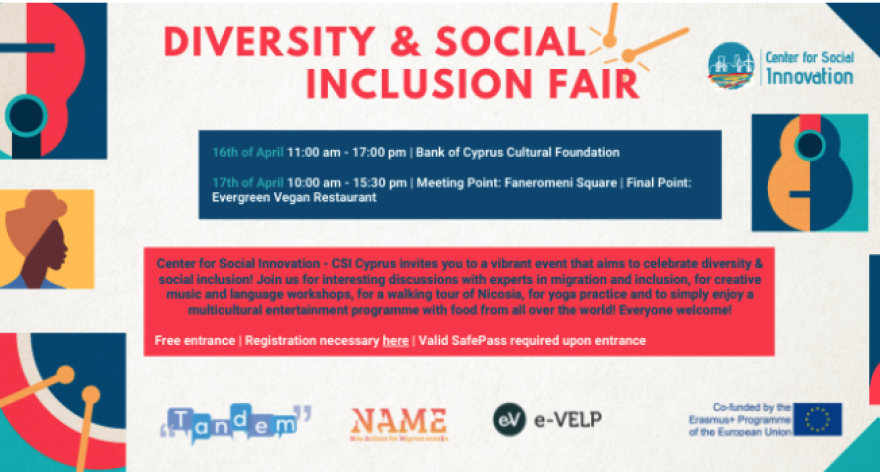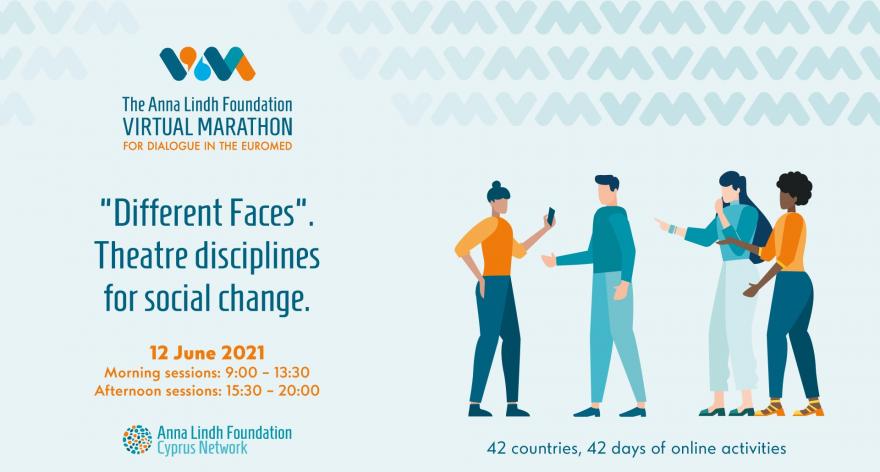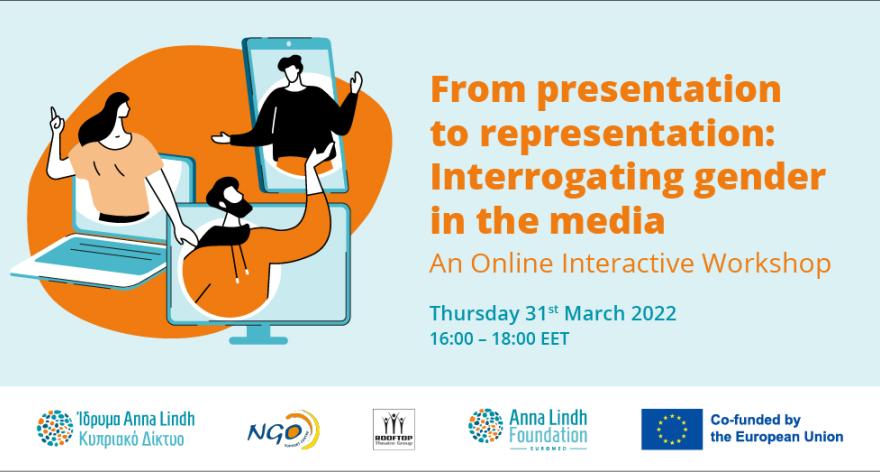Diversity & Social Inclusion Fair

Center for Social Innovation - CSI Cyprus is organising the Diversity & Social Inclusion Fair on the 16th and 17th of April in Nicosia!
Join for interesting discussions with migration and inclusion experts, for creative music and language workshops, for a walking tour of Nicosia, for yoga practice and to simply enjoy a multicultural entertainment programme with international food! Everyone is welcome.
When & where? 16th April (Bank of Cyprus Cultural Foundation) & 17th of April (Starting point: Faneromenis square) in Nicosia.
Registration necessary, here: https://forms.gle/SQ1SNdKCFhG3qvjv6 | Facebook event: https://fb.me/e/1yMX0p6jN
Valid SafePass will be required upon entrance to the event. FREE ENTRANCE
For more info, contact: anastasia.liopetriti@csicy.com


